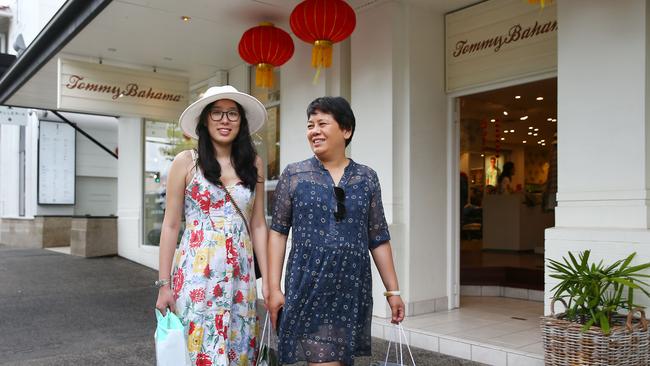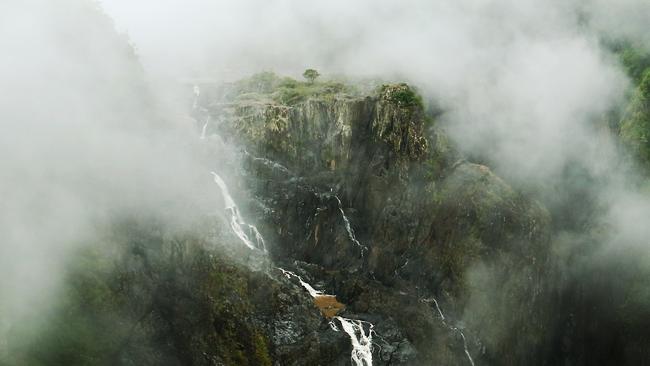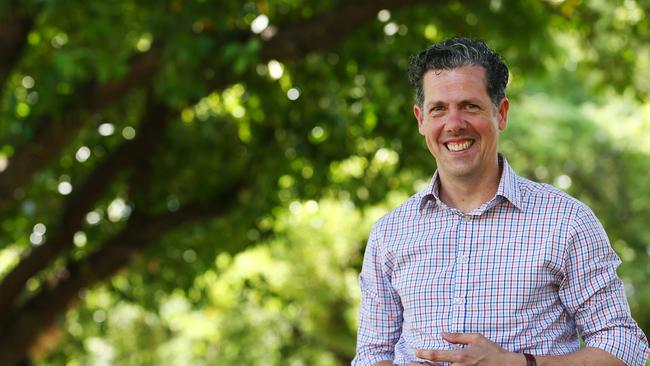Future Tourism: Cairns has Chinese future long after coronavirus scare
Lucrative tourism links forged between Australia and China are poised for exponential expansion long after the immediate coronavirus travel deadlock has been broken.
Cairns
Don't miss out on the headlines from Cairns. Followed categories will be added to My News.
LUCRATIVE tourism links forged between Australia and China are poised for exponential expansion long after the immediate coronavirus travel deadlock has been broken.
The sheer numbers are almost unfathomable – annual Chinese visitor levels are set to almost double to 2.5 million over the decade to 2027, according to official Tourism Research Australia projections.
In context, the next biggest international source market for Australia will be New Zealand with 1.8 million, leaving a 750,000-visitor gap between the two frontrunners.

BUY TICKETS: Hear Bernard Salt’s insights at Future Tourism event in Cairns
The sleeping giant is rousing, bolting ahead and putting plenty of distance behind it.
The Demographics Group managing director Bernard Salt said the challenge for Cairns, the Great Barrier Reef and Far North Queensland as a whole was to wrest an enviable and gainful share from the claws of ravenous destination markets down south.
They, too, have seen the numbers and are doing everything in their power to leave Cairns in a cloud of red dust.
Mr Salt said the official Australian tourism forecasting body did not make visitation predictions lightly, and he should know – he was once the head of the Tourism Forecasting Committee.
“By the end of the 2020s, China opens up this massive lead,” he said.

READ MORE
Bernard Salt: How FNQ can wrest visitors from down south
China travel ban puts Far North industry in holding pattern
“It’s like two marathon runners for 20 years running neck and neck, then one of them stops at a drinks station and the other one just powers ahead.”
Another insight, seemingly at odds with increasingly common rhetoric about big-spending US and European visitors, relates to the deep pockets of the Chinese tourist.
Nobody outspends the average Chinese visitor, who shells out $8873 during an Australian stay, ahead of the next biggest spenders Switzerland ($7296 per head), Italy ($6812), Scandinavia ($6335). and the Netherlands ($6190).
US tourists are the biggest spenders per night, but they are typically a quickfire lot who prefer short, expensive stays that hoteliers love – however, big volumes are needed to make a significant impact on the economy.

Tourism Tropical North Queensland CEO Mark Olsen said India was another market to keep an eye on – and Mr Salt’s analysis showed Indian visitation to Australia increased a whopping 30 per cent from 2017-2018.
Indians spend the least amount per night for any international source market but they prefer very long stays with friends and family, and little outlays all add up over time.
Mr Olsen said Cairns and the Far North’s future tourism success would lie in its ability to branch out – not just into new source regions and tourism products, but also new agricultural, educational and professional export markets.

China will remain an enormous piece of that puzzle.
“There are already 170 destination marketing organisations with offices in Shanghai,” Mr Olsen said.
“It is the most sought-after outbound travel market segment in the world.
“The predicted numbers are fantastic, but maintaining our share will be our challenge.
“That means increasingly growing our share of the free and independent travel market, while maintaining the incredible success we have had with Chinese group travel.
“Our challenge is to remain fashionable … and it will be so critical to have marketing dollars in the region to keep Cairns and the Great Barrier Reef at the front of mind.”
WHERE AUSTRALIAN VISITORS HAIL FROM
2019
1. China 1,433,000
2. New Zealand 1,409,000
3. USA 804,000
4. UK 721,000
5. Japan 483,000
6. Singapore 453,000
7. Malaysia 399,000
8. India 372,000
9. Hong Kong 313,000
10. South Korea 284,000
TOTAL 9,359,000
2029 FORECAST
1. China 2,554,000
2. New Zealand 1,829,000
3. USA 1,288,000
4. UK 940,000
5. India 879,000
6. Malaysia 653,000
7. Japan 651,000
8. Singapore 594,000
9. Hong Kong 451,000
10. South Korea 403,000
TOTAL 14,639,000
Originally published as Future Tourism: Cairns has Chinese future long after coronavirus scare


